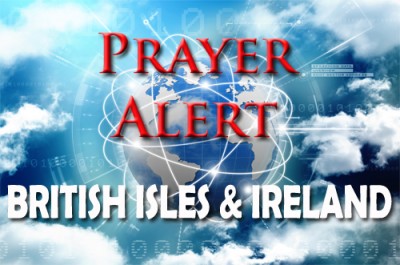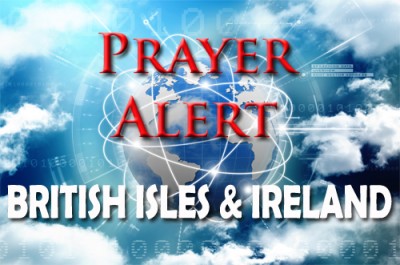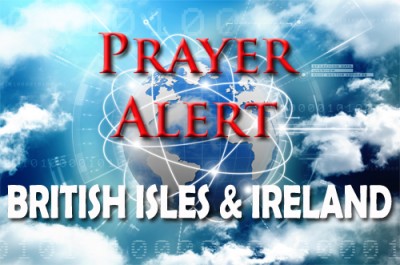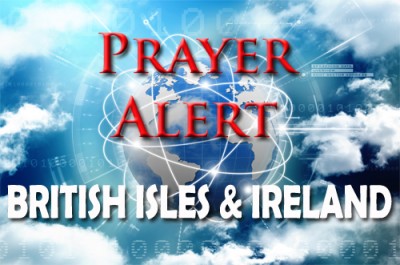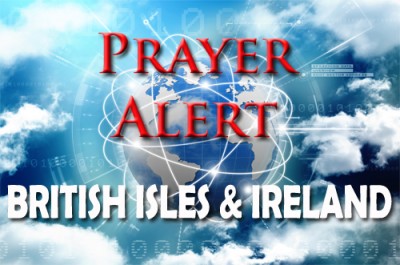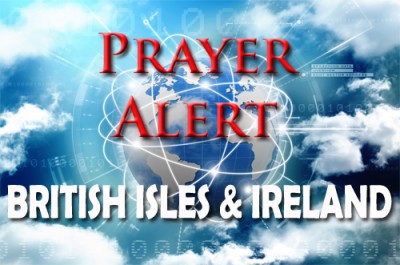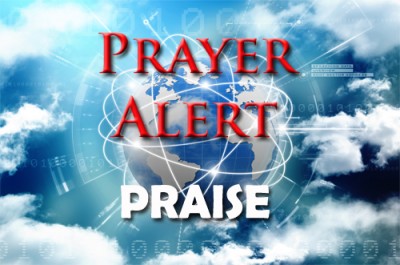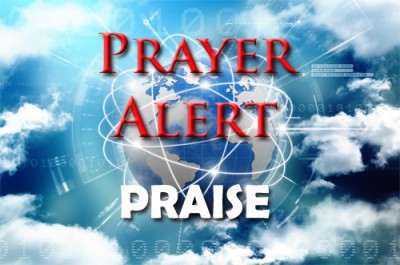Challenges of doing faith-based films
03 Jul 2015Creating faith-based films and shows is no easy feat for Christian couple Mark Burnett and Roma Downey. They have admitted that they relied heavily on prayer and research in order to get the job done correctly. They are busy working on the film ‘Ben-Hur’ and the new TLC series called ‘Answered Prayers.’ While it seems that the two are on a roll to create inspiring films, Burnett and Downey said they actually devote a lot of time and attention to make sure they get things right. Burnett said they did their homework before embarking on the shows The Bible and A.D. The Bible Continues. He said he told himself before embarking on his last project, ‘It better be authentic and you better not (sic) cross any lines.’ ‘When you're dealing with Jesus in a screenplay, it's not really the time for improvising,’ added Downey.
Nicky Morgan, the Education Secretary, was speaking as schools in England and Wales were issued with a guide to identifying pupils in danger of radicalisation. She said attacking core British values or being extremely intolerant of homosexuality were examples of behaviour that could raise the alarm. The NUT said the guidance would cause teachers ‘nervousness and confusion’. The advice is designed to enable teachers to identify pupils who may have come under the influence of extremist organisations or being ‘groomed" by extremists. Teachers would then be expected to alert senior staff, social services and the police. The move has not been prompted by the massacre in Tunisia but follows David Cameron's call for people to become ‘intolerant of intolerance.’ Ms Morgan told BBC Radio 4's Today programme, ‘Radicalisation or the risk of children being drawn into non-violent extremism is a very real threat in this country.’
Major counter-terrorism exercise in London
03 Jul 2015Police officers, soldiers, emergency services and intelligence officials took part in London's largest counter-terrorism exercise to date. The simulation of a terror attack has been six months in the planning and codenamed ‘Strong Tower’. It involved 1,000 police across the capital during Tuesday and Wednesday and has tested responses to extremists using firearms. It comes days after 38 people were killed by a gunman in Tunisia, the majority of them British holidaymakers. The Metropolitan Police says this week's exercise is not based on any specific intelligence and is part of a long-term strategy of planning and preparing for all possible types of terror attack. The threat level for terrorism had been raised over the last year, making it vital ‘that we train and we learn’. The reason we have exercises like these is because the police and government are concerned that there are people planning terrorist events.
Assisted suicide: MPs set to vote on new bill
03 Jul 2015Labour MP Rob Marris has taken up the campaign to introduce assisted suicide and will bring a Private Member's Bill to Westminster in the coming weeks. He wants to see a ‘compassionate’ assisted suicide law passed by Parliament; pro-life Christian charities say caring is always better than killing. Downing Street said the Bill would not be given Government support, with David Cameron’s spokesman saying he was ‘concerned that legislation may push people into things they do not actually want for themselves’. SNP leader Nicola Sturgeon voted against assisted suicide in Scotland last month, and former Liberal Democrat party leader Nick Clegg has spoken out against the practice. Dignity in Dying, formerly known as the Voluntary Euthanasia Society, is supporting the proposals. Although MPs are expected to vote on the issue in September many are praying now that this bill will not pick up momentum in the coming months.
The Spiritual Care Chaplaincy team at North Manchester General Hospital intends to change the way the Catholic Chapel of Saint Raphael is currently used in order to create a Muslim prayer room, but nearly 5,000 people have signed a petition protesting against the plans. Worship space will also be provided for Jewish people and Christians and there will in addition be a ‘quiet room’ for people of no faith at all. However there will be no space that is specifically Catholic. St Raphael's Chapel currently contains the Blessed Sacrament, and Mass is celebrated weekly. According to a petition launched by Father Ged Murphy of St Patrick's and St Malachy's parish in Collyhurst, the chapel is well-used and highly valued by patients, staff and visitors as a ‘valued resource which is much needed when people are at their lowest ebb.’
This is your chance to stand in prayer for our nations. Online bookings are now closed but you can still book by phone on 0121 633 7393. Come and join with brothers and sisters in Christ at the ICC in Birmingham this Saturday, 4 July, and pray for revival. ARE YOU READY FOR REVIVAL? Revival has to start in our hearts first. As TRUMPET CALL 2015 approaches, the team at the World Prayer Centre have a growing sense of excitement and expectation. It will be a momentous day - a memorable meeting with God. Yesterday, they had a word about rain clouds on the mountains. Read more at http://www.worldprayer.org.uk/event-registration/?ee=15 and pray with us.
Travel info: allow plenty of time to park, walk to the ICC, find the venue and get yourself prepared for this time with God. Please be aware that access to the car parks around the ICC is more difficult than usual due to significant city centre roadworks. Find out more and where to park at the link below.
By age 14, Rosario ‘Chayo’ Perez was stealing pickup trucks from Tucson and bringing them across the border, where mafiosos paid him $1,000 each. When Chayo was 16, his best friend was murdered at his house on Christmas Day. ‘Life was such a haze,’ he recalls. He reached a point where he was living like an animal – just partying, drinking, using drugs and fighting. Then his older brother got saved at a church that street-preached and started to witness to him but he asked to be left alone. Then one day his brother said, ‘OK, I’ll leave you alone, but first let me pray for you. If nothing happens, I’ll leave you alone.’ Chao said, ‘I put my beer down. He prayed for me, and the Holy Ghost came down. I started weeping. My friends were freaking out because I was weeping. It was something supernatural. Even to this day, I can’t explain it.’
Teen idol Justin Bieber has made headlines for his hard-partying lifestyle and run-ins with the law in several countries, including a January 2014 arrest for allegedly racing a Lamborghini through Miami. He announced in January on his Facebook page that he wanted to leave behind his ‘arrogant and conceited’ behaviour. Bieber arrived in Sydney on Monday to attend a week-long gathering at a Hillsong pentecostal church, in an attempt to discard his hard-partying image. ‘Justin is here, like tens of thousands of others, as a delegate who is seeking to build stronger foundations into his life,’ Hillsong Church said in a statement. Music is central to Hillsong's form of worship but the Canadian singer is unlikely to perform any of Hillsong's faith-based songs, according to the church. Last year, Hillsong's conference in Sydney attracted around 20,000 followers from more than 60 countries.
